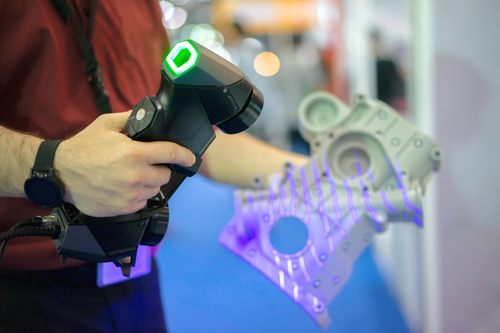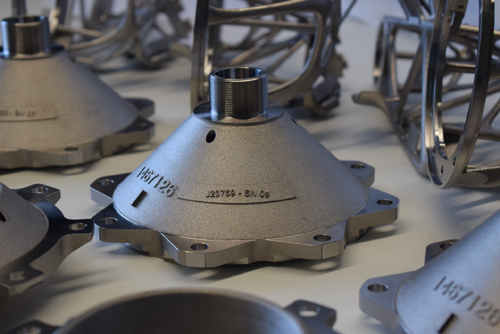The Future of Manufacturing: Thales' Pioneering Advances in Additive Design

In the rapidly evolving world of manufacturing, Thales stands at the forefront, harnessing the transformative power of Additive Manufacturing (AM), a process with far-reaching implications that extend beyond the creation of simple objects. This technology, characterised by its ability to create complex shapes and structures, is not just about innovation for the sake of innovation, but for the addition of function to parts or the simplification of assemblies. It represents a paradigm shift in how we think about production, design, and the environmental footprint of our industrial activities.
Revolutionising Production with Additive Manufacturing
At Thales, additive manufacturing has been a game changer. Our journey into AM began over two decades ago, focusing initially on non-metals for tooling and prototyping. The technology has since matured, with Thales leading the charge in adopting metal additive manufacturing for components in aerospace, defense, and beyond. Today, every Thales Alenia Space (TAS) satellite benefits from this pioneering technology, showcasing Thales' commitment to innovation. AM widens the possibilities within manufacturing, where certain designs cannot be created via traditional manufacturing methods such as casting and milling as there is a significant increase in design freedom given in the process of building components one layer at a time. The fleet of available 3D Printers within Thales in the UK allow for the management of a stable supply chain that provides access to non-core processes and materials.
Environmental Impact and ESG Goals

Additive manufacturing at Thales isn't just about creating more efficient components; it's a testament to our commitment to eco-design and environmental sustainability. The process significantly reduces material wastage, energy consumption, and CO2 emissions. For instance, large Titanium parts within our naval products enables a remarkable reduction in part recurring cost, lead-time, CO2 emissions, energy, and material consumption. These achievements align with our internal eco-design initiatives, the Ministry of Defense's ESG requirements as well as enhancing product competitiveness.
Strategic Collaborations and Internal Synergies
Our progress in Additive Manufacturing is fuelled by strategic partnerships with academia, industry leaders and regulatory bodies, as well as robust internal coordination across Thales' business units. These collaborations have been instrumental in refining AM techniques, sharing best practices, and driving innovation. By investing in state-of-the-art equipment and research, Thales has realised significant real-world savings.
As part of the supply change transformation, adopting Industry 4.0 technologies, Thales in the UK engages with its partner facility in Morocco, an industrial competency centre specialising in the Additive Manufacturing of metallic parts.
Thales' commitment to Additive Manufacturing extends beyond our internal operations. We actively engage with external standardisation bodies, contribute to regulatory publications, and drive improvements in commercial standards and material specifications. Our goal is not just to benefit Thales but to elevate the entire industry, paving the way for more sustainable and efficient manufacturing practices worldwide.
Steve Catt, Senior Mechanical Engineer at Thales
The Path Forward
Looking ahead, Thales envisions Additive Manufacturing as a standard practice within our operations, integrated seamlessly into our design and prototyping processes. Our five-year plan emphasises the continued expansion of AM applications, knowledge transfer across disciplines, and a deepening commitment to R&D. As we move towards a future where Additive Manufacturing is ubiquitous alongside the many other manufacturing processes, Thales remains dedicated to leading the charge, demonstrating the tangible benefits of this technology for our planet, our products, and our partners.
In embracing Additive Manufacturing, Thales is not just shaping the future of production but also contributing to a more sustainable world. Our journey is a testament to the power of innovation to drive positive change, underscoring our role as a leader in the field and a steward of the environment.


